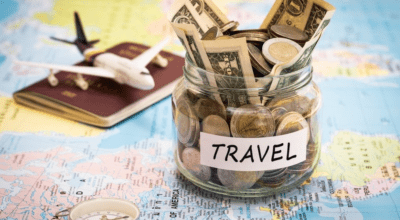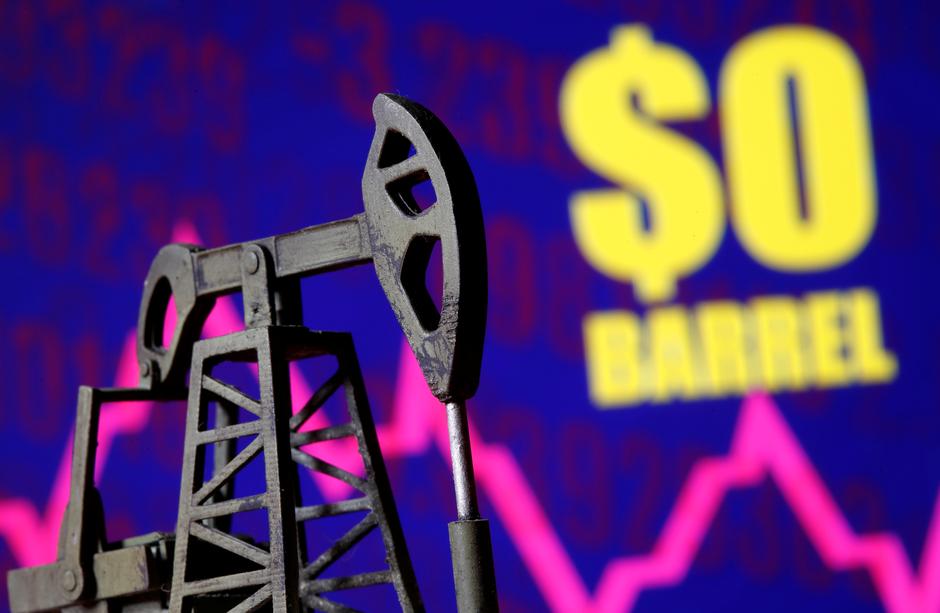Yesterday night, the news everywhere wrote headlines they probably never expected to write. For the first time in history, U.S. crude oil collapsed below $0 and reached negative values. As Bloomberg put it, the day “ended with prices falling below zero, thrusting markets into a parallel universe where traders were willing to pay $40 a barrel just to get somebody to take crude off their hands.”
Prices in oil fluctuations have passed through wars and global financial crises, but this particular one is the worst the world has ever seen. As economists, policy makers and heads of state try to come to terms with this reality, it is unclear what all this actually means for the future. For a while now, people are trying to adjust to a new normal during COVID-19 and world leaders are trying to understand what the world will look like when it’s over.
“The negative prices revealed a fundamental truth about the oil market in the age of coronavirus: The world’s most important commodity is quickly losing all value as chronic oversupply overwhelms the world’s crude tanks, pipelines and supertankers. Ultimately, traders were left desperate to avoid having to take delivery of actual oil because nobody needs it and there are fewer and fewer places to put it,” Bloomberg wrote.
What Exactly Happened?
Very simply, the sudden drop in oil prices happened when oil producers ran out of space to store crude. The reason they have no space is due to the COVID-19 crisis and the fact that no market is in need of buying oil.
Hence, this led to a ‘historic market collapse that left oil traders reeling’ when the price of US crude oil dropped from $18 to -$38 in only a few hours, said The Guardian. Meaning, oil producers would be paying buyers to take barrels that they had no space to store. “The market crash underlined the impact of the coronavirus outbreak on oil demand as the global economy slumps,” the article added.

Technically, the price has been decreasing since the virus first broke out in China and this was followed by major economies collapsing and decreased travel until eventually a global travel lock down occurred. Moreover, “oil producers have continued to pump crude from their wells, causing a catastrophic imbalance between oversupplied oil and the biggest slump in demand for 25 years,” The Guardian said.
Whether the world will be able to open again soon or whether it will even look the same when it does is not a guarantee. So in the short term, what this means is that some oil companies might pay to sell their oil. “For some producers, it may be cheaper in the long run than shutting down production or finding a place to store the supply bubbling out of the ground,” Bloomberg reported.
For many, stopping production and shutting wells could cause permanent damage thus ending any future that could’ve been. However, The Guardian says that buyers would have to bet that oil prices will actually rise so that they’d be making an investment. “No oil company wants to “sell” their crude at a loss, so many producers are likely to shut their wells until the market recovers,” they said.
Will it Recover?
In theory, when COVID-19 comes to an end and world economies can resume, then oil prices should recover. But can things really pick up where they left off? As per City A.M, London’s financial and business newspaper, stocks need to be used up before prices begin to rise again. And for that to happen, the global economy needs to function. Of course, for the global economy to function, jobs and consumerism need to go back to normal.
However, many have stated that ‘normal’ will take time.
The Associated Press reported that the reason for the oil crash is clear. “Efforts to limit the spread of the coronavirus have major cities around the world on lock down, air travel has been seriously curtailed, and millions of people are working from home, leading to far fewer commuters on the roads.”
Although health and safety has been a top priority for these past few months, how much longer can this go on? How much longer can the world economy sustain the current situation? Various business owners in and outside Egypt have repeatedly stated the need for work life to contain normally. The next few weeks will show whether jobs may return to normal or whether it’s not the right time yet. Some countries have begun to move forward and re-opened regular working conditions and hours.




























